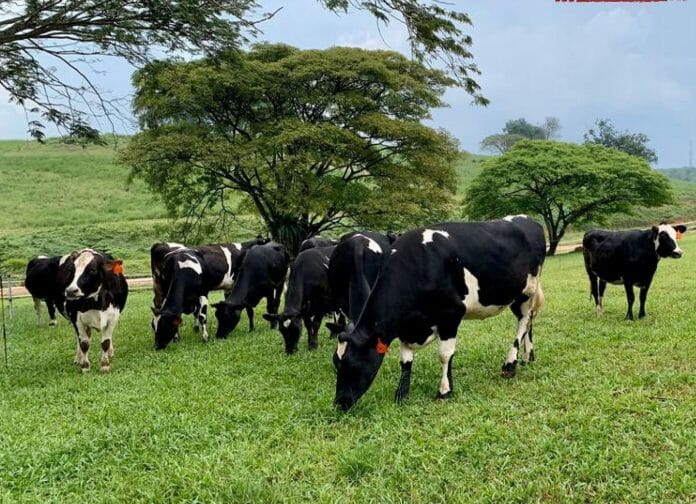Malaysia's dairy industry has the potential to be developed for guaranteed food supply and eventually reduce dependence on imported dairy goods. In 2020, domestic milk consumption was 69.4 million liters a year, however the local dairy industry was only able to produce 43.3 million liters per year although this has shown an increase compared to 2015 which was 36.4 million liters. This shortfall resulted in the country needing to import 26.1 million liters from overseas. Under the National Agro-Food Policy 2021-2030 subsistence level (SSL) fresh milk is targeted to be at 100% by 2030 compared to 62.4% by 2020 which means Malaysia does not want to import this commodity by then. To achieve the target, the Ministry of Agricuture and Food Industries through the Services Department Veterinarians has introduced a Strategic Plan for the Development of the Dairy Industry State (Dairy Plan) 2021-2025. These efforts will deliver the desired results but will need the support and cooperation from the industry players towards the development of the dairy industry. For instance according, Deputy Secretary General (Development), Datuk Badrul Hisham Mohd, cooperation of the Ministry with Farm Fresh Bhd is an exmaple how public private partnership was initiaitied to increase milk production and marketing to consumers through various platforms. The strategic collaboration with Farm Fresh Bhd has successfully created job opportunities by producing a total of 45 stockists, 832 homedealers and 1,302 agents in Malaysia and Singapore which is largely made up of housewives. The approach was to ensure that accessiblility to source of nutritious food was at an affordable price, in addition helping the dairy industry continue to grow which will benefit breeders. Young entreprenuers are encouraged to tap into the many opprtunities that lies in the industry, those who are interested can get support from the Ministry through its Young Agropreneur Grants where applicants can apply for assistance up to RM20,000 for marketing purposes and facilities such as equipment and mobile food trucks.









